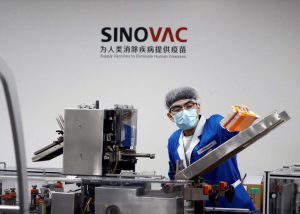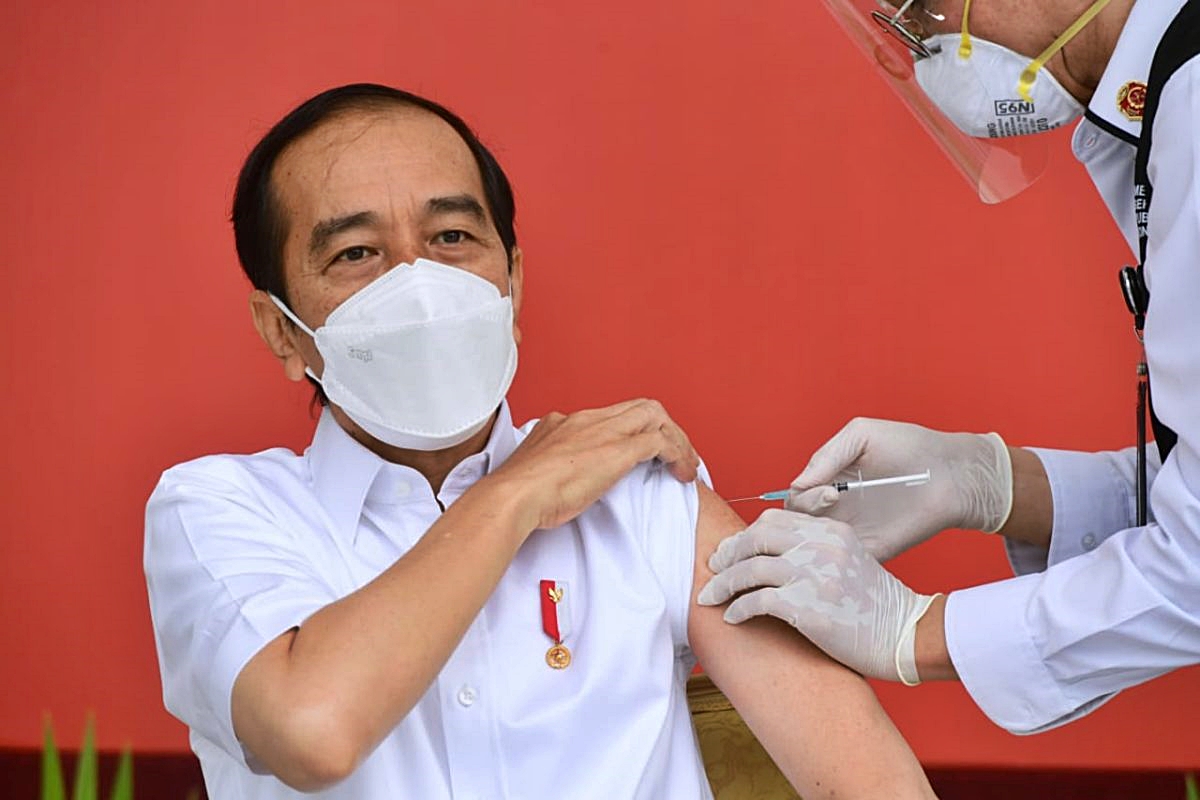[ad_1]
Virologists and vaccine specialists with China’s National Health Commission (NHC) said on Wednesday they had a detailed plan to upgrade homegrown vaccines against Covid-19 to “version 2.0†within two months to stop the spread of new mutant strains found across the United Kingdom and South Africa.
The claim coincided with Pfizer’s announcement on Wednesday that its Covid-19 vaccine works against mutated variants found in the UK and South Africa, according to a lab study. China’s claim comes as local firms SinoPharm and Sinovac crank out their Covid-19 shots for mass inoculations.
While admitting that the antibodies induced by existing Chinese-made shots may be less effective in neutralizing new more contagious variants of the virus, NHC experts told Xinhua and the People’s Daily that a tweak to the vaccine formulas and manufacturing process could be achieved within 60 days.
The Xinhua report did not reveal any details of the upgrade or say if this meant the Chinese vaccines being administered nationwide in China and in countries in Southeast Asia and South America were inferior to the Western drugs that critics say were developed and trialed in a more transparent manner.
Preliminary data from researchers in Brazil that organized final-stage human trials of Sinovac’s attenuated vaccine showed its efficacy was just marginally higher than the World Health Organization-prescribed threshold of 50%.
The Beijing-based drugmaker has also been accused of holding back key details about its overseas human trials. But Indonesian President Joko Widodo, in a vote of confidence, had the second dose of the Chinese vaccine administered on Wednesday.
The Global Times, a publication affiliated with the People’s Daily and known for its nationalistic slant, has been quick to quash widespread perceptions that Chinese vaccines are inferior to their Western counterparts.
Quoting Shao Yimin, the chief infectious disease expert with the National Center for Disease Control and Prevention in Beijing, the paper stressed that all drugs against Covid-19 available thus far – either Chinese or Western – had all been developed from the original viral sequence retrieved from samples from Wuhan, the initial ground zero of the pandemic.

“Thus all jabs we get at present may not fare too well in shielding us from variants of new strains… Once we get the new British and South African strains, all we need to do is put them in existing fermentation tubes as seed pathogens and cultivate them and then attenuate them to make them harmless or less virulent and then we have a better vaccine,†Shao told the paper.
The expert reportedly sits on a WHO panel on vaccine research and is also a member of a review task force with the National Medical Products Administration that hashed out approval parameters and granted a permit to a vaccine developed by SinoPharm at the end of last year.
The NHC has so far only identified two local cases in China that are linked to the B.1.1.7 strain first discovered in the UK. The public health authority contends that existing Chinese vaccines would still help keep infection rates low since quarantine and testing at airports and border checkpoints can largely keep the new mutated variants at bay.
NHC deputy director Zeng Yixin told a State Council press briefing on Covid-19 on Wednesday that as of this week about 22.76 million doses had been given to 11.38 million people across the nation prioritized for immunization. He said that almost 40 million would receive their jabs by the Chinese New Year, which falls on February 12.
Meanwhile, Beijing’s municipal authority is determined to apply more test requirements on arrivals and recovered patients before they can enter or travel around the capital.
The Beijing News reported that about 1,200 pupils and staff at an elementary school in Beijing’s Daxing district had been mandated to undergo, on top of the routine nasopharyngeal swab and saliva sample tests, additional serum and rectal swab tests last week after a nine-year-old boy came down with the virus.
Beijing’s municipal health authority confirmed on Wednesday that all close contacts of confirmed patients in Daxing, now flashing red as a “high-risk†area on the NHC’s map tracking nationwide infections, all had rectal swab tests.
Li Tongceng, chief of the respiratory disease division at Beijing’s Youan Hospital, told reporters that traces of the coronavirus could still be found in excrement and rectal swab samples of asymptomatic carriers even when their upper respiratory tracts were free of the pathogen.
Li said additional tests were meant to screen at-risk people for Covid when the capital city was still grappling with sporadic outbreaks, but he also admitted that many people would resist taking such additional tests due to inconvenience or privacy concerns.
However, he said those already in quarantine in Beijing would be asked to take part in such tests as various types of viral and bacterial infections may be detected via a rectal swab, which would be more accurate.
A March 2020 study by the Guangzhou Women and Children’s Hospital also revealed that the virus could survive longer in the rectums of infected underage patients even if they had returned negative results in nasal and throat swab tests and that the possibility of Covid infections through digestive systems could not be ruled out.
China registered 75 local infections on Wednesday, including four in Beijing. Regions with higher caseloads include Hebei, Heilongjiang and Jilin.
An expert team dispatched by the WHO to look for the possible origin of the pandemic, meanwhile, emerged from their two-week isolation in Wuhan and embarked on their epidemiological probe in the central Chinese city, more than one year after the virus first appeared there.
[ad_2]











